Are some of the everyday items in your home causing your pets harm? Just like humans, cats and dogs can suffer from allergies. Here’s how to keep your beloved pets safe.
1. Scratching and Biting – Dog

If your dog is constantly scratching or biting its skin, it might be suffering from an allergy. Fleas are a common culprit, but food and environmental allergens can also cause this behaviour.
2. Hair Loss – Cat

Excessive grooming due to allergies can lead to bald spots in cats. This is often a response to allergens like dust mites or certain foods.
3. Red, Itchy Eyes – Dog
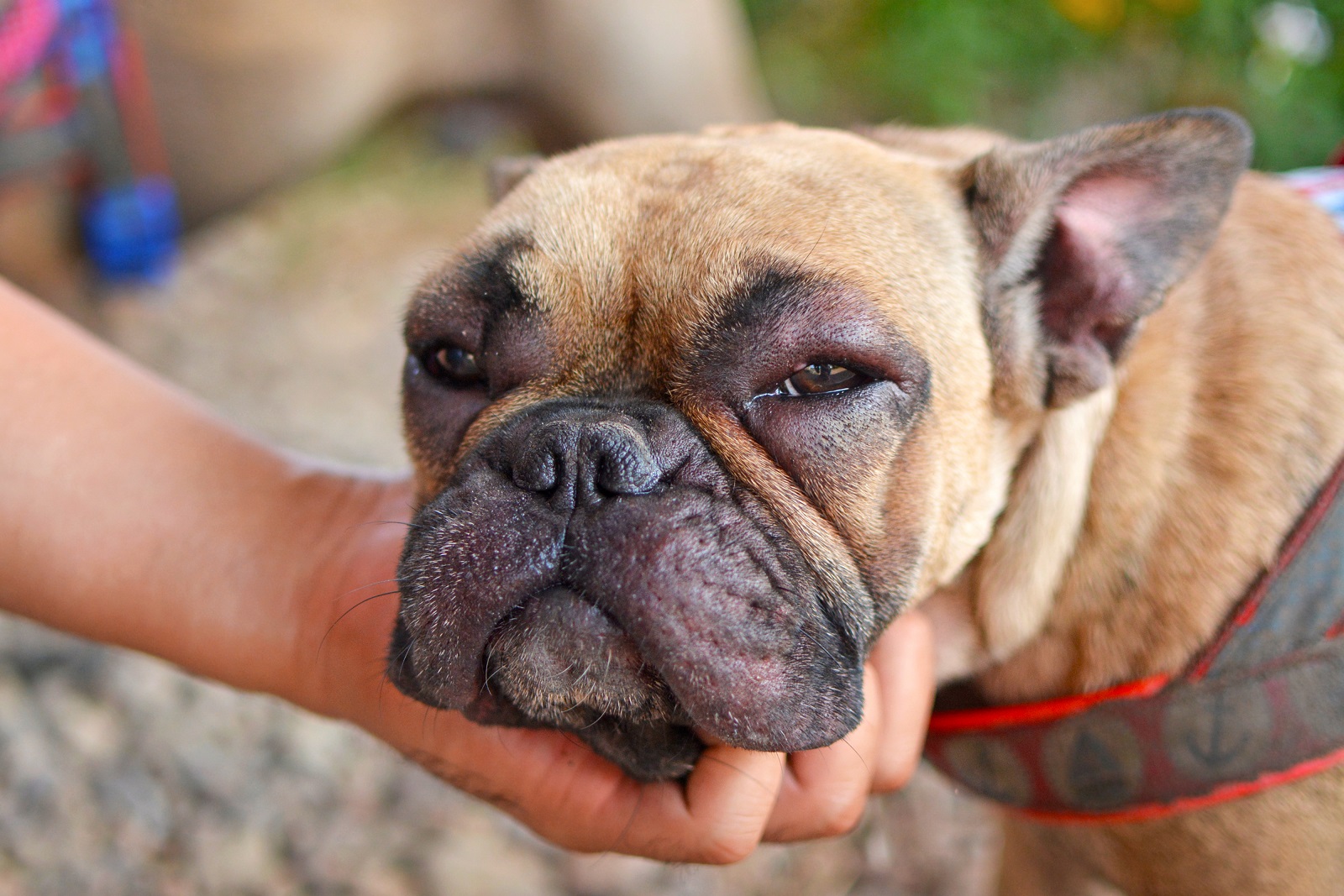
Red, watery eyes in dogs can indicate an allergic reaction. Pollen and dust are common triggers, especially in the spring and summer.
4. Sneezing – Cat

Frequent sneezing in cats can be a sign of an allergic reaction to airborne particles. Common allergens include pollen, dust, and mould.
5. Ear Infections – Dog
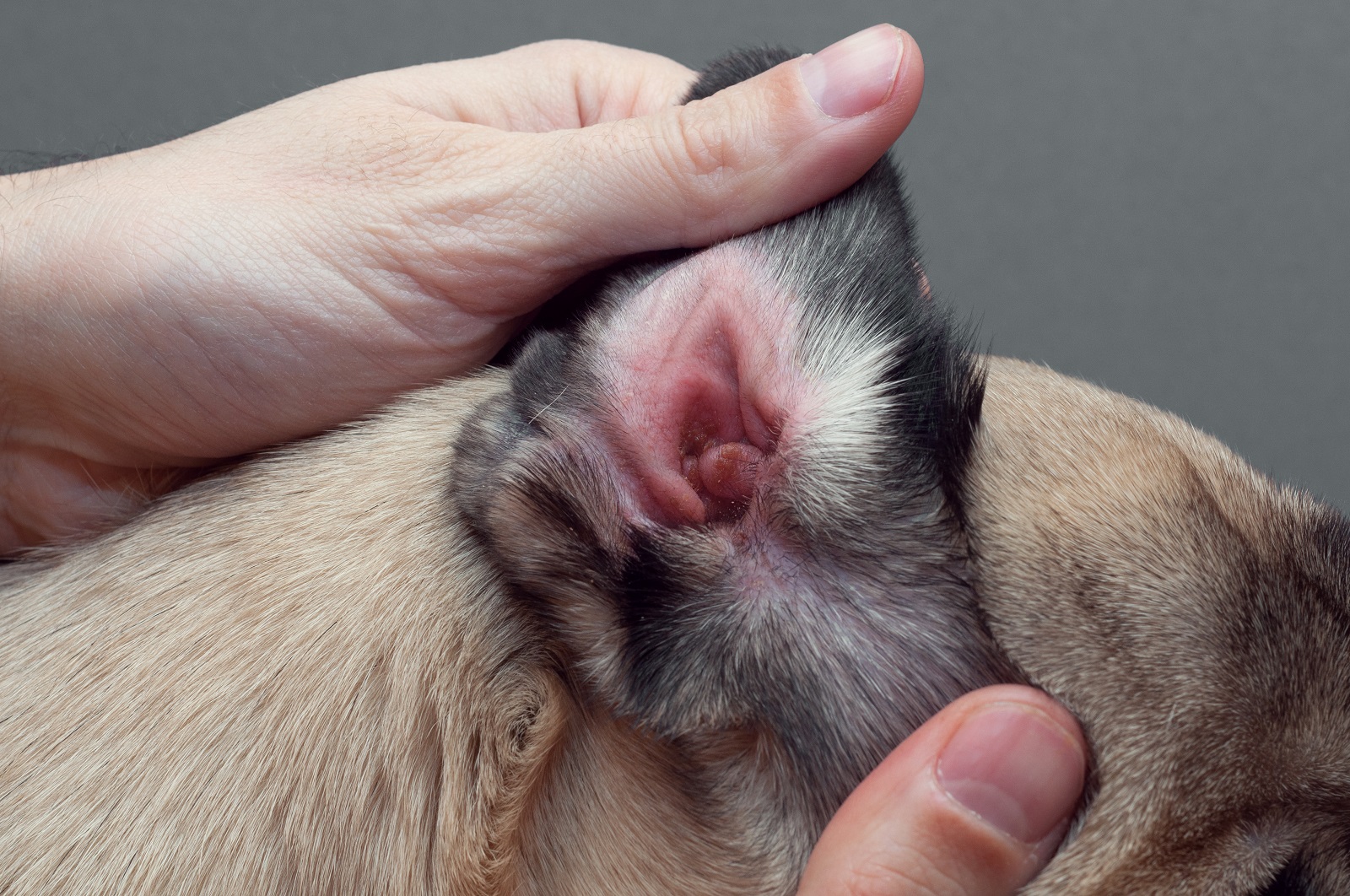
Chronic ear infections in dogs are often linked to allergies. If your dog is shaking its head or scratching its ears a lot, it might be time to check for allergens.
6. Swollen Paws – Cat

If your cat is licking its paws excessively, they might be swollen due to an allergy. Pollen, grass, or certain cleaning products can cause this reaction.
7. Respiratory Issues – Dog
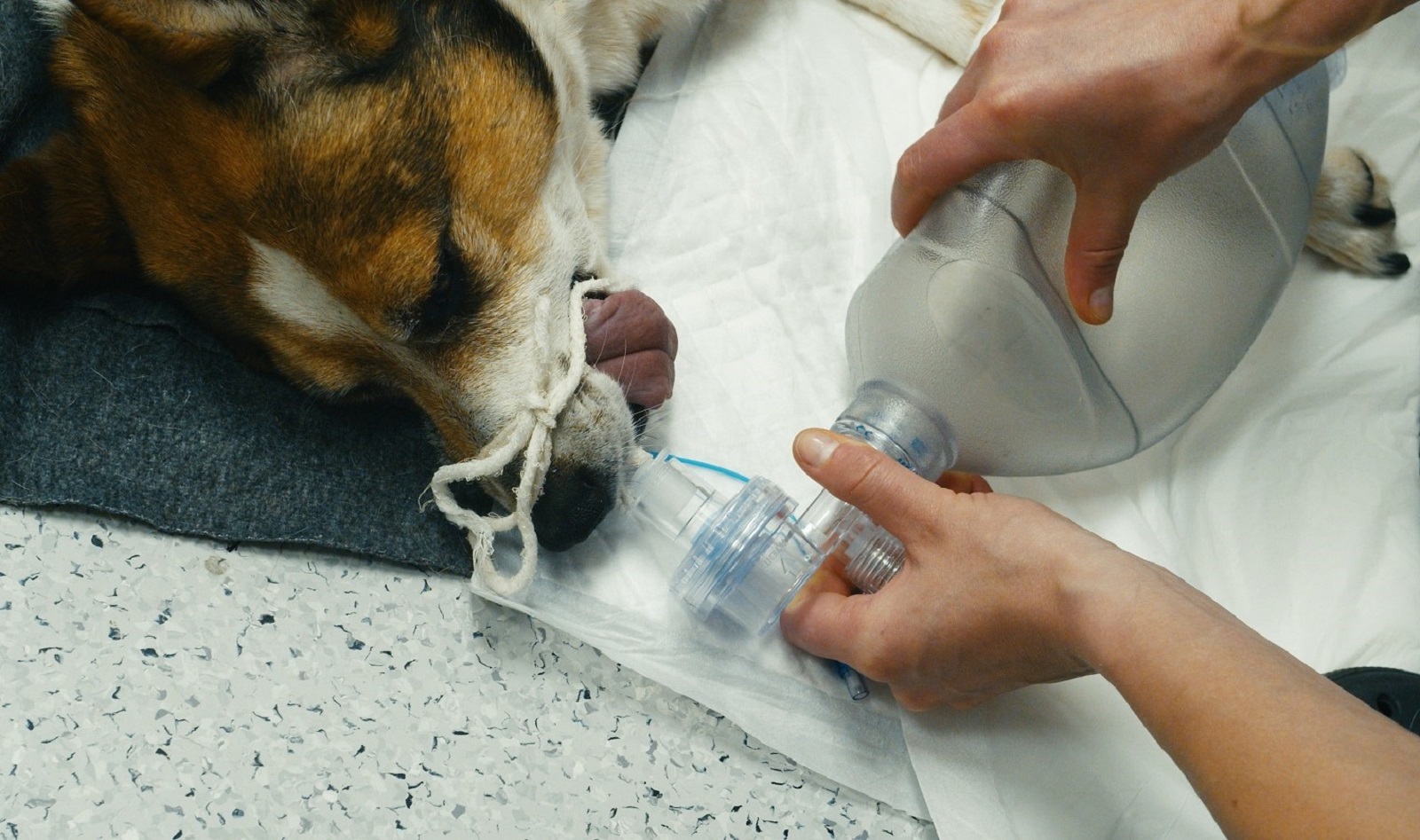
Wheezing or difficulty breathing in dogs can be a serious sign of allergies. Mould spores, dust mites, and cigarette smoke are common triggers.
8. Vomiting – Cat
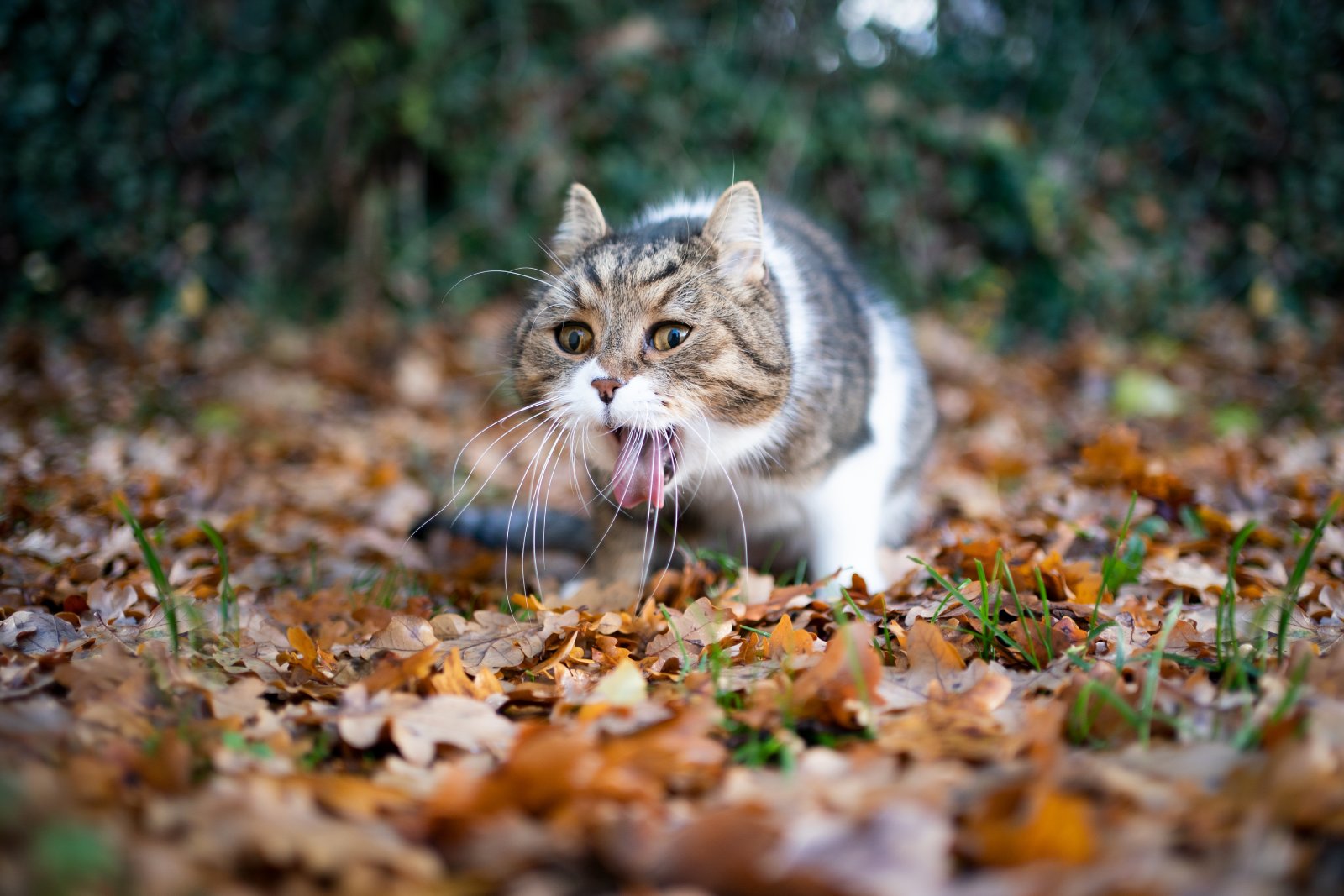
Cats can develop allergies to certain foods, leading to vomiting and gastrointestinal issues. Common allergens include beef, dairy, and fish.
9. Hot Spots – Dog
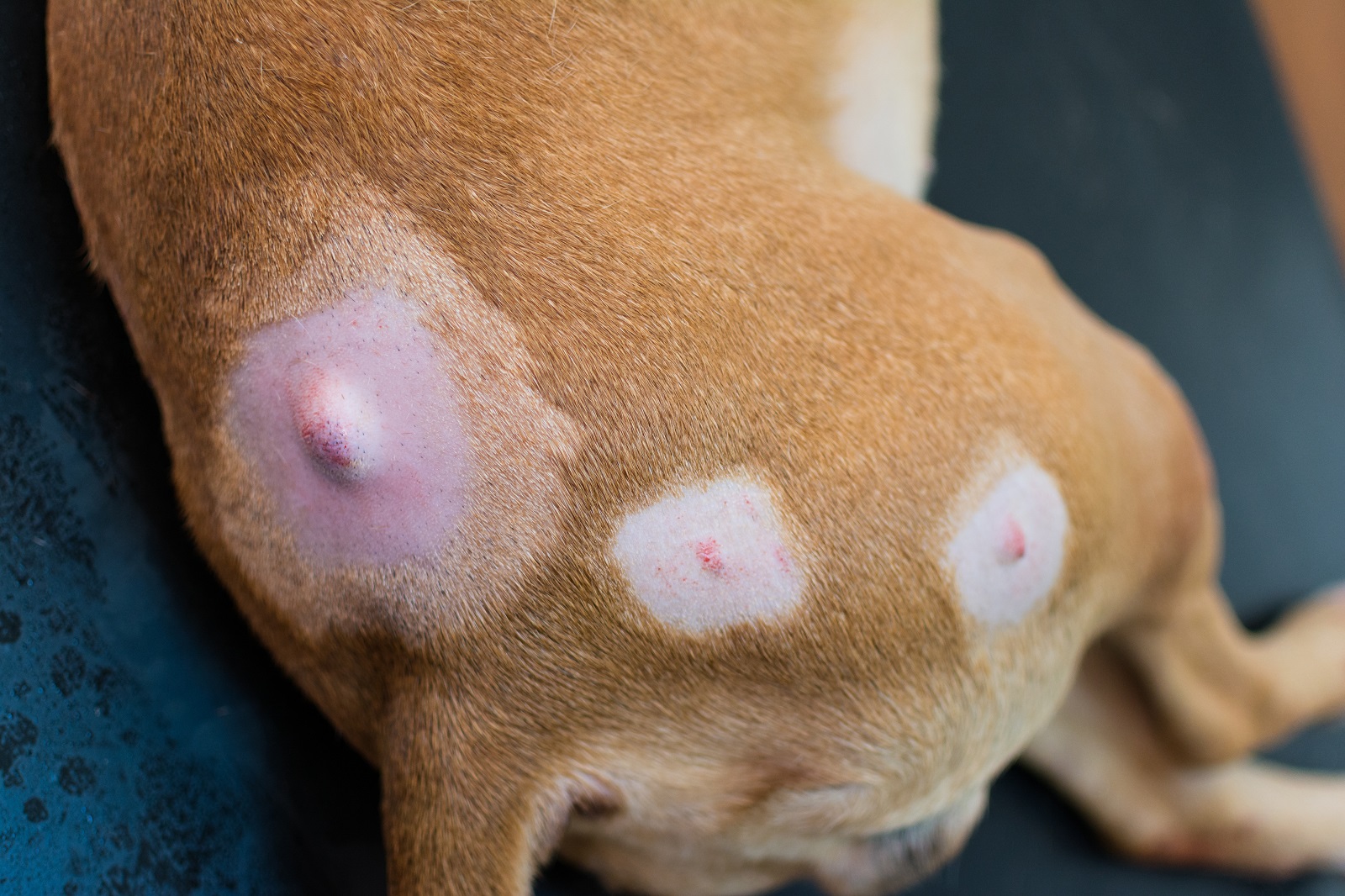
Hot spots, or areas of inflamed skin, are often a sign of allergies in dogs. These can be caused by flea bites, food allergies, or environmental factors.
10. Skin Rashes – Cat
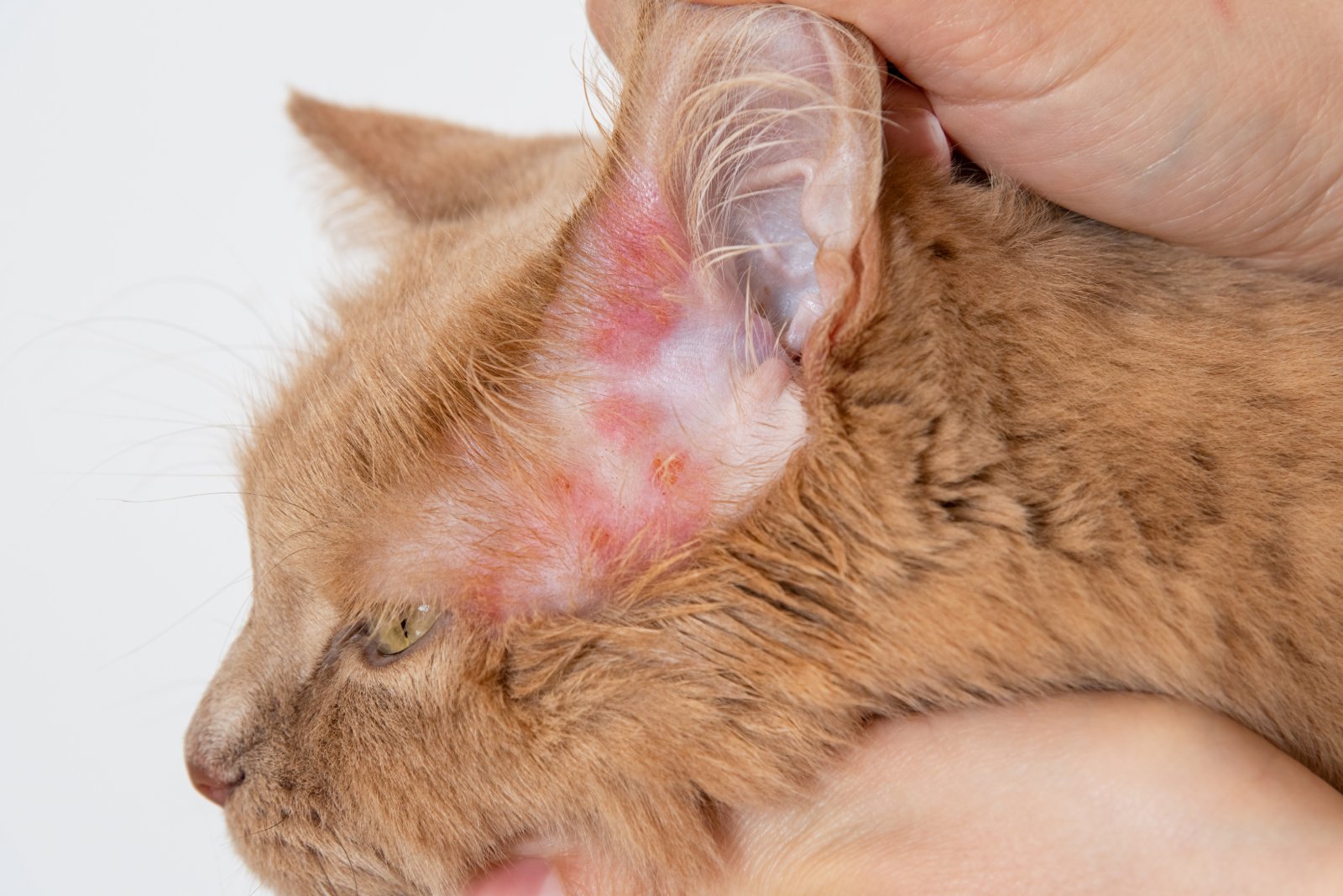
Red, inflamed patches of skin in cats can indicate an allergic reaction. Flea saliva, certain foods, and household chemicals are typical causes.
11. Reverse Sneezing – Dog

Reverse sneezing in dogs, which sounds like rapid inhalation, can be a reaction to allergens. It’s often triggered by pollen, perfumes, or household sprays.
12. Diarrhea – Cat
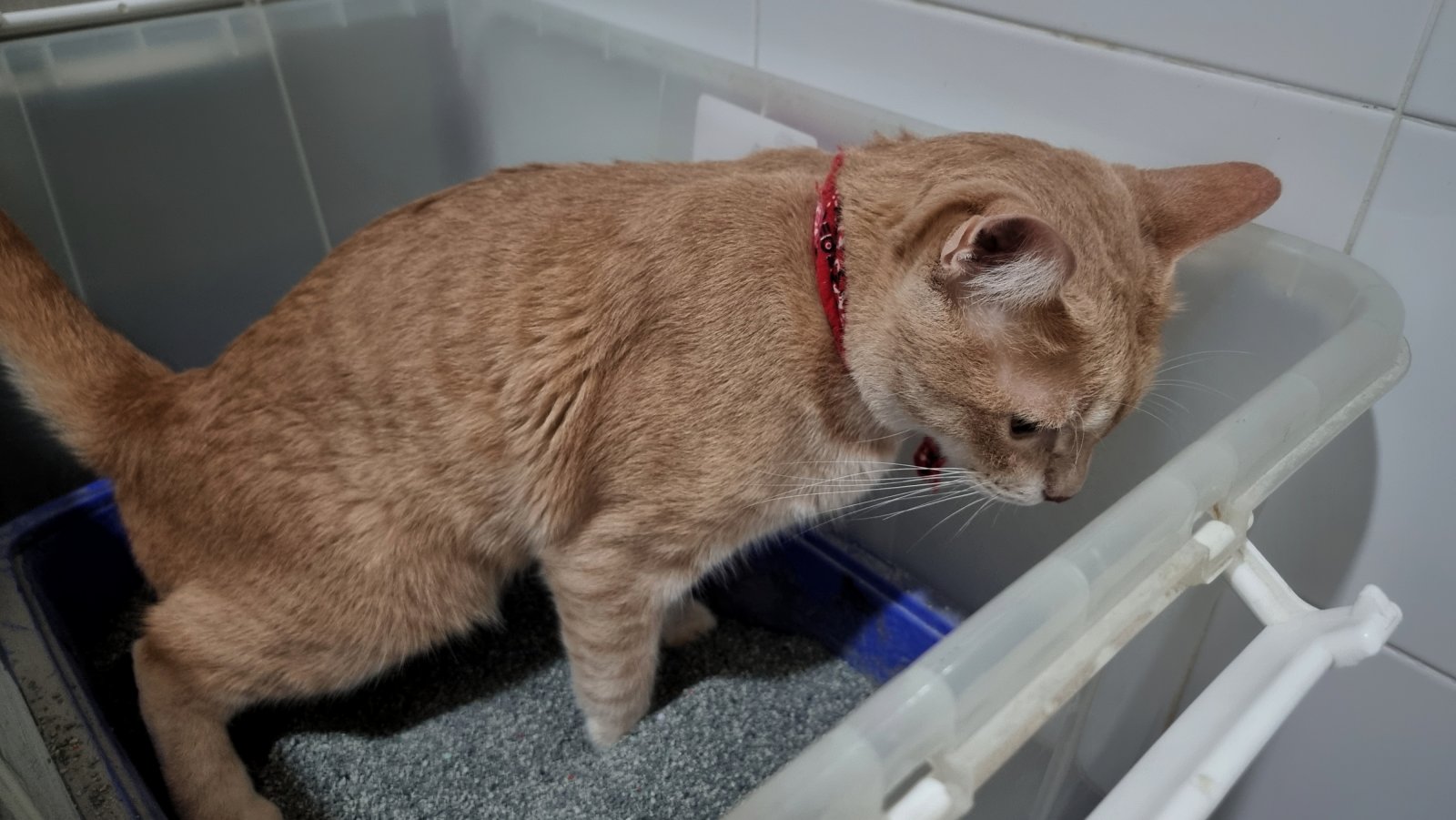
Allergic reactions to food can cause diarrhoea in cats. Keeping an eye on their diet and identifying potential allergens can help manage this issue.
13. Paw Chewing – Dog
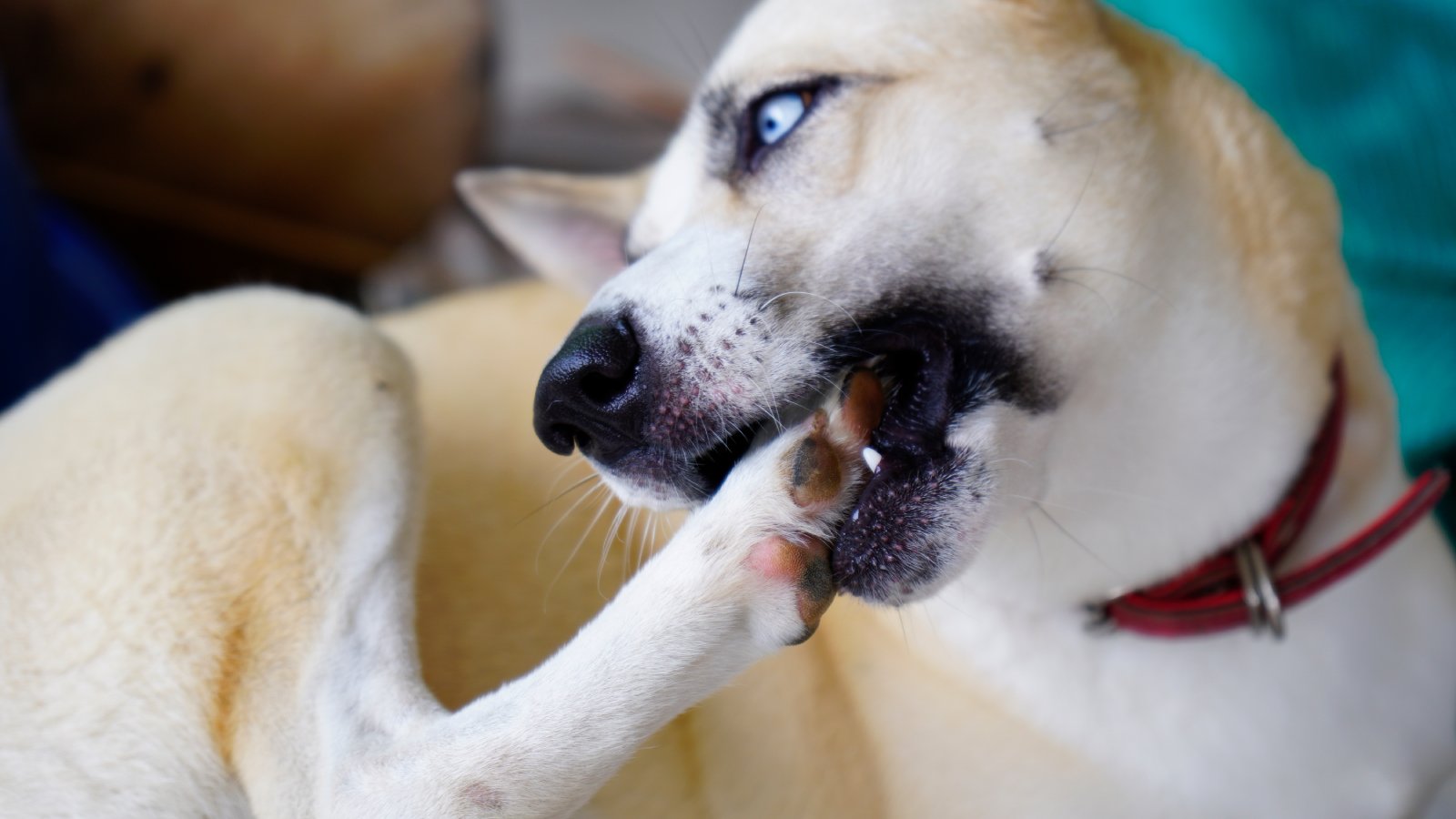
Dogs that chew their paws excessively might be dealing with an allergy. Grass, weeds, and lawn treatments are common irritants.
14. Runny Nose – Cat

A runny nose in cats can be a sign of an allergy. Dust, mould, and certain types of cat litter are frequent triggers.
15. Frequent Ear Scratching – Dog

If your dog is scratching its ears more than usual, it could be dealing with allergies. Food and environmental allergens are often the culprits.
16. Lethargy – Cat

Allergies can cause your cat to feel lethargic and less playful. Identifying and removing allergens from their environment can help restore their energy.
17. Coughing – Dog
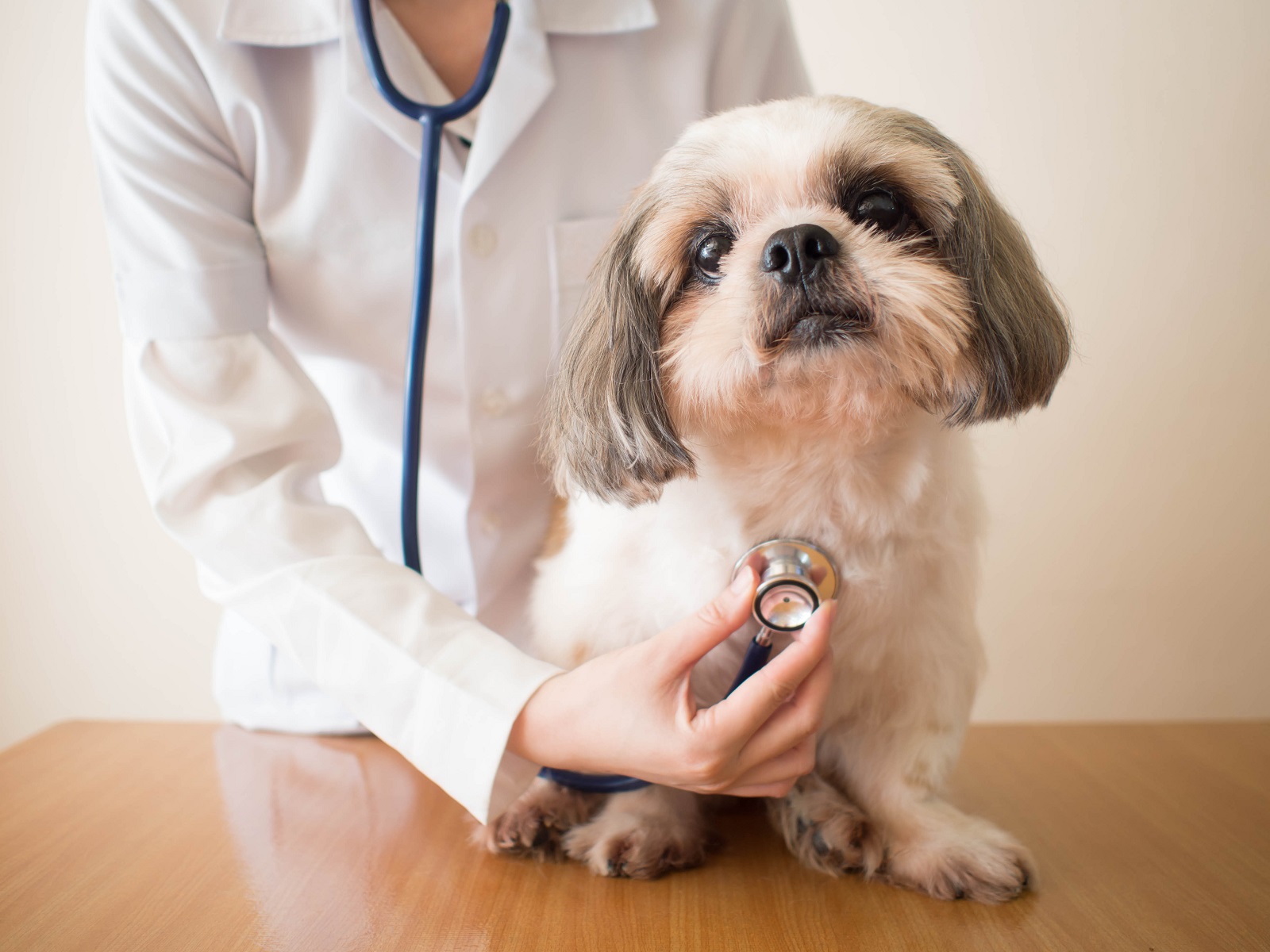
Persistent coughing in dogs can indicate an allergic reaction. Common allergens include cigarette smoke, dust, and pollen.
18. Over-Grooming – Cat

Cats that groom themselves excessively might be trying to soothe itchy skin caused by allergies. Fleas, food, and environmental factors are usual suspects.
19. Snoring – Dog

While snoring can be normal, sudden snoring in dogs might indicate an allergic reaction causing nasal congestion. Dust and pollen are common irritants.
20. Facial Swelling – Cat
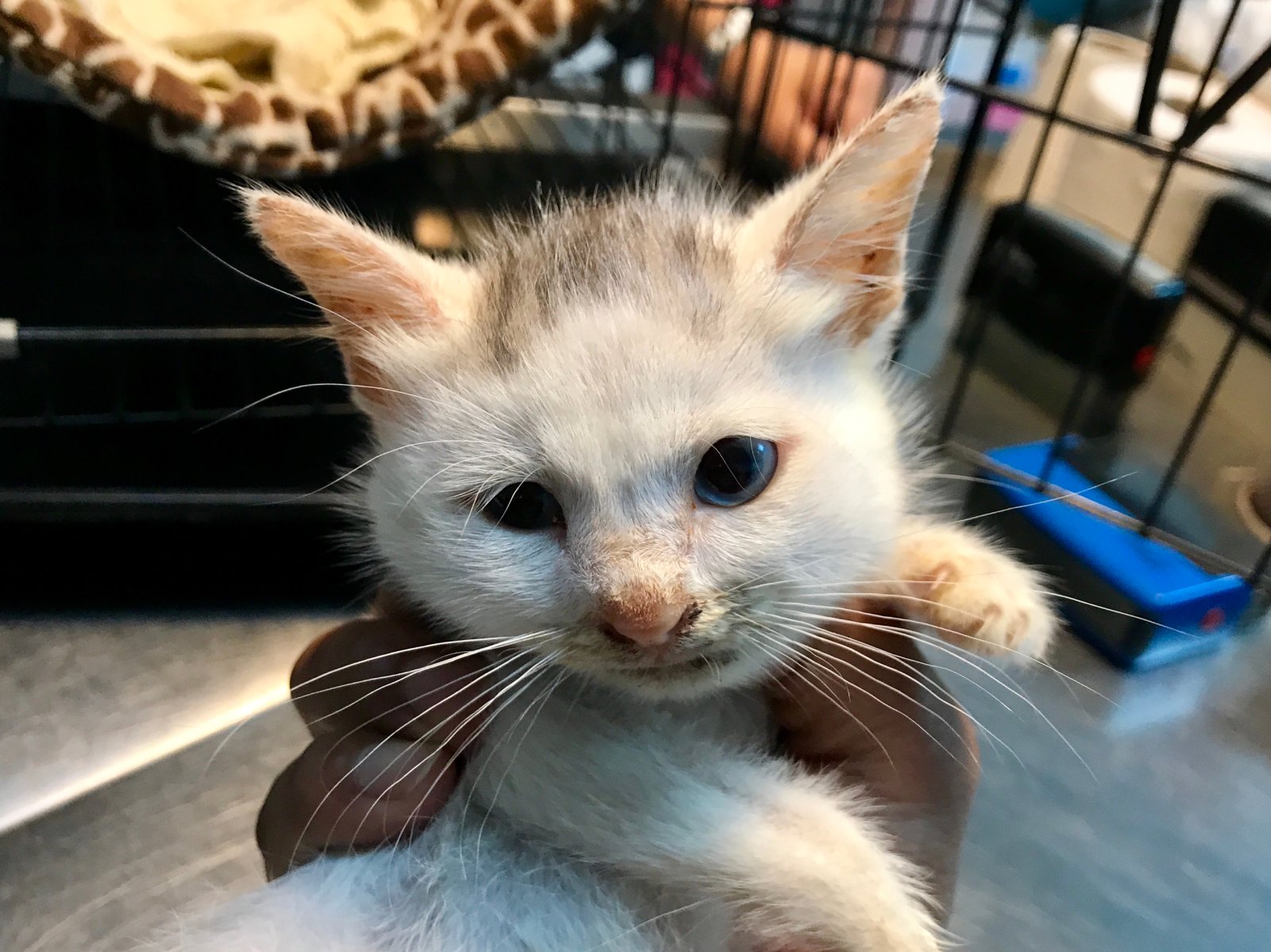
Swelling around a cat’s face can be a severe allergic reaction. Insect stings, certain foods, or medications are potential causes.
Keep Your Pets Comfortable

Being vigilant about these signs can help you identify and manage your pet’s allergies effectively. Regular vet check-ups, a clean home environment, and a careful selection of food and products can make a huge difference in your pet’s health and happiness. Remember, a little extra attention to what might be causing discomfort can go a long way in ensuring your furry friend’s well-being.
Featured Image Credit: Shutterstock / Sagittarius_13.
For transparency, this content was partly developed with AI assistance and carefully curated by an experienced editor to be informative and ensure accuracy.

